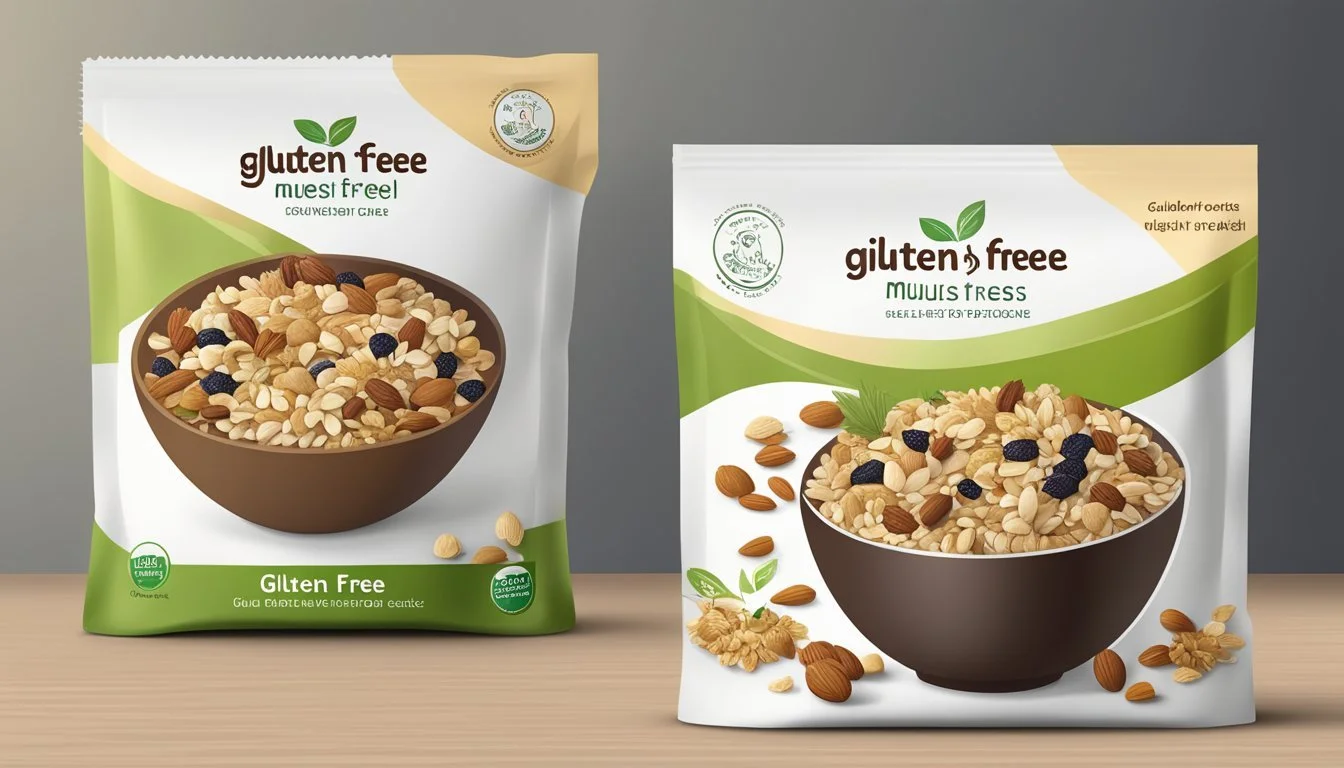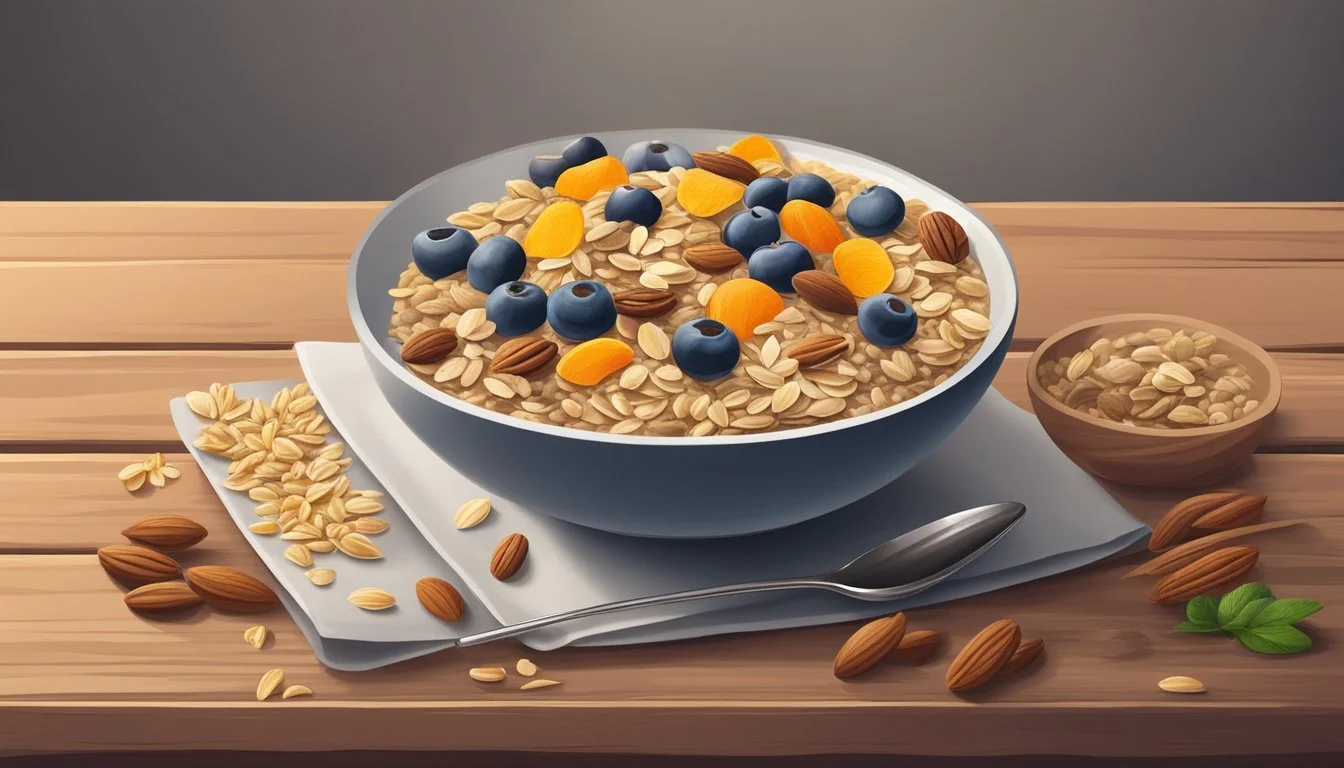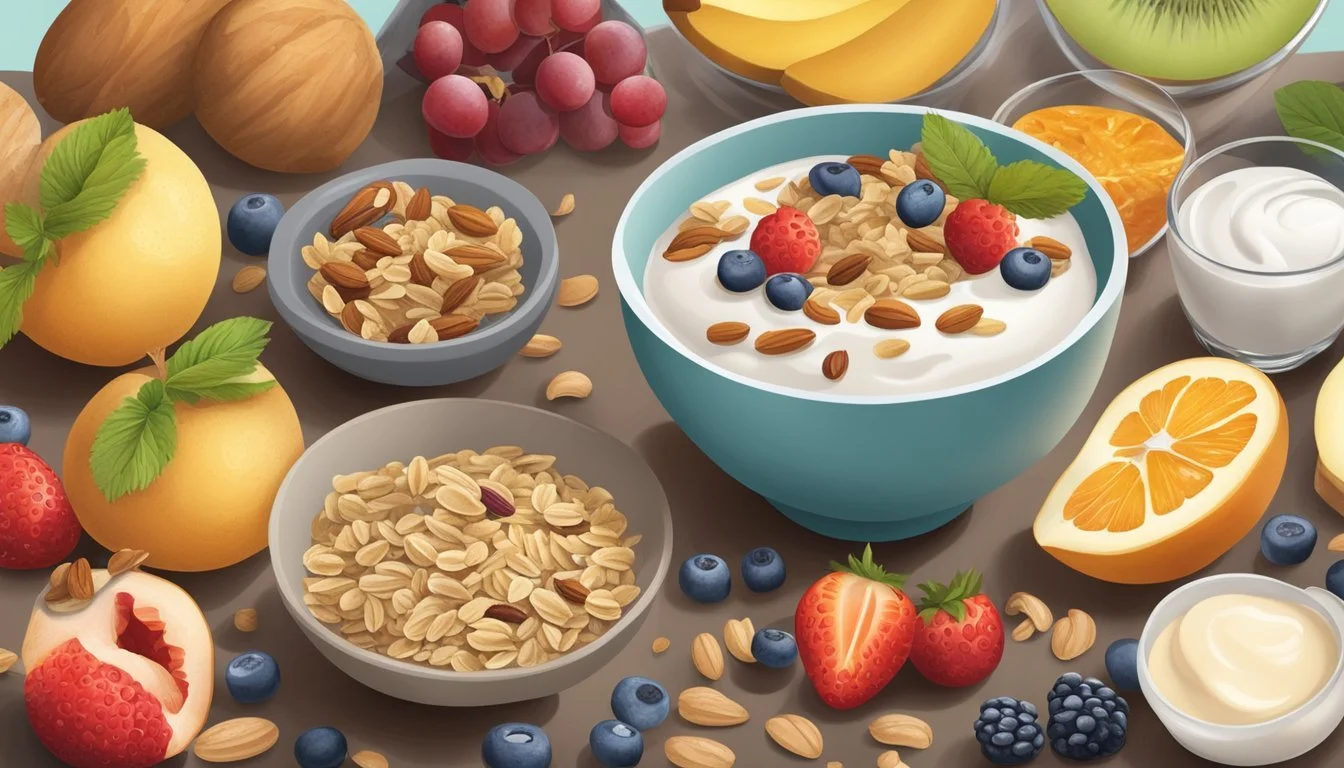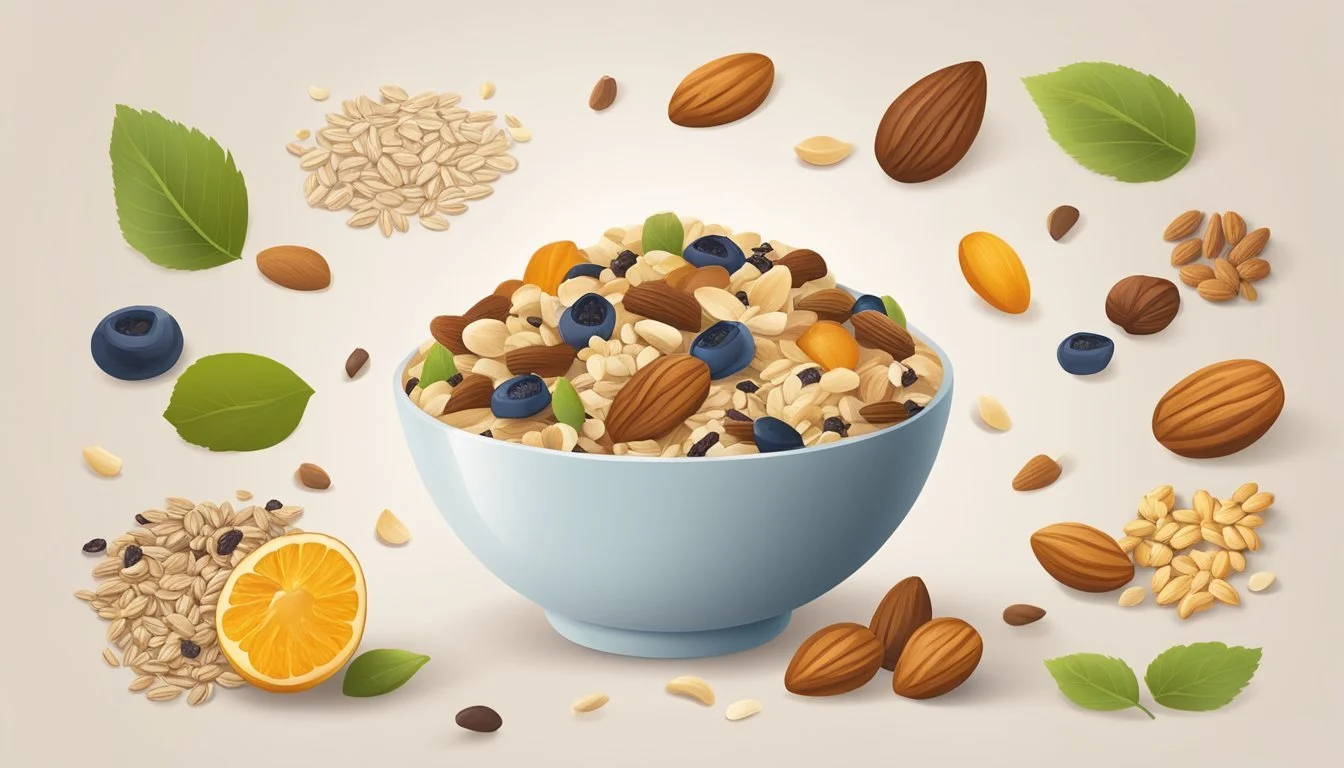Is Muesli Gluten-Free?
Understanding Your Breakfast Options
Muesli, a food item traditionally made from a base of rolled oats combined with various ingredients such as nuts, seeds, and dried fruits (What wine goes well with dried fruits?), originates from a Swiss breakfast dish developed by Dr. Maximilian Bircher-Benner. Oats, the primary component of muesli, are inherently gluten-free. However, they are often processed in facilities that handle wheat, barley, and rye, which contain gluten, leading to potential cross-contamination. Therefore, individuals with gluten sensitivity or celiac disease must be vigilant when selecting muesli.
The emergence of gluten-free diets has led to an increased availability of certified gluten-free muesli products in the market. These gluten-free alternatives ensure that the oats have been processed in a dedicated gluten-free facility or cleaned thoroughly to remove any traces of gluten. To cater to consumers who follow a gluten-free lifestyle, labels such as "certified gluten-free" are helpful indicators to guarantee the safety and compliance of these products.
In addition to choosing gluten-free oats, muesli intended for gluten-free diets should also contain other gluten-free ingredients. Almonds, hazelnuts, pumpkin seeds, and certain dried fruits mentioned in specific recipes, are naturally free from gluten. When preparing homemade muesli or purchasing pre-packaged varieties, it is essential to scrutinize ingredient lists for any additives or components that might contain gluten, ensuring a safe and enjoyable meal for those avoiding this group of proteins.
What Is Muesli?
Muesli is a versatile breakfast cereal known for its wholesome ingredients and its origins in Swiss cuisine.
Origins and History
The creation of muesli is generally credited to a Swiss physician named Maximilian Bircher-Benner in the early 20th century. He introduced muesli as a part of a healthy diet for his patients in Switzerland.
Muesli Ingredients
Traditional muesli is a mixture that typically contains whole grains such as rolled oats, along with a variety of nuts and seeds. It also often includes dried and fresh fruits for additional flavor and nutritional value.
Types of Muesli
Muesli comes in various forms, including both fresh types, known as Bircher muesli, which are soaked overnight, and dried, ready-to-eat versions that are similar to granola but generally less sweet and baked.
Nutritional Profile
Muesli is known for its rich content of fiber, protein, and healthy fats. The nutritional content can vary, but it generally provides a balanced supply of energy and nutrients.
Common Muesli Additions
To enhance flavor and nutrition, muesli is often served with milk, yogurt, or plant-based alternatives like almond milk. Sweeteners such as honey, maple syrup, or sugar; and additions like fresh fruit or coconut oil can also be included.
Muesli Recipes
Muesli recipes can be homemade, allowing for customization of ingredients. Prep time varies, but muesli is often quick to prepare, with no cooking required unless one opts for a warm serving.
Muesli vs. Granola
While muesli and granola both contain oats and nuts, granola is baked and usually includes a sweetener like honey, making it crunchier and sweeter compared to the typically unbaked muesli.
Gluten-Free Considerations
Muesli can be made gluten-free by using certified gluten-free oats and ensuring that there is no cross-contamination with gluten-containing ingredients, which is crucial for individuals with celiac disease or gluten sensitivity.
Understanding Gluten
Gluten is a protein found in certain grains like wheat, barley, and rye. A gluten-free diet is essential for people with an allergy or sensitivity to gluten or for those who have celiac disease.
Health Benefits of Muesli
Muesli is a nutrient-rich breakfast option that provides a multitude of health benefits. It contains a mix of ingredients including whole grains, nuts, and seeds that work together to support various aspects of health.
Heart Health
Muesli is beneficial for heart health due to its content of oat bran, which is high in beta-glucan, a type of soluble fiber. Beta-glucan has been shown to help reduce cholesterol levels by up to 10 percent. The inclusion of nuts such as almonds and walnuts also adds healthy fats and antioxidants which contribute to cardiovascular well-being.
Digestive Wellness
The fiber in muesli, particularly from whole grains and seeds like chia and flax, is integral to digestive wellness. It supports regular bowel movements and aids in maintaining a healthy digestive tract. This can be especially beneficial for those following a vegan or dairy-free diet, as it ensures an adequate intake of essential fibers.
Weight Management
For individuals concerned with weight management, muesli offers a satisfying meal with a balance of fiber, protein, and healthy fats. This combination helps in controlling appetite and can reduce calorie intake by promoting a feeling of fullness.
Energy and Nutrition
Consuming muesli for breakfast can provide a steady source of energy due to its complex carbohydrates and protein. Ingredients like oats and seeds offer sustained energy, while a variety of nuts and fruits contribute vitamins and minerals for overall nutrition.
Dietary Considerations
When it comes to dietary preferences or restrictions, muesli can be quite adaptable. Many muesli products are gluten-free, making them suitable for individuals with celiac disease, while others may be tailored to vegan, paleo, or gluten-free diets. For a healthier choice, one should look for muesli versions that contain natural ingredients, with minimal added sugars, and are labeled as gluten-free if necessary.
How to Choose Gluten-Free Muesli
When selecting gluten-free muesli, it's crucial to understand the labeling, know which ingredients to avoid due to gluten presence, identify safe ingredients, and be aware of brands that offer certified gluten-free options.
Understanding Labels
For those with celiac disease or gluten sensitivity, reading labels is key. Certified gluten-free oats on a label indicate the oats have been processed to avoid cross-contamination with gluten-containing grains such as wheat, barley, and rye. Look for muesli packages that display a certified gluten-free mark, ensuring the product meets strict standards.
Ingredients to Avoid
Avoid muesli that contains:
Whole grains like wheat, barley, and rye.
Variants of these grains (e.g., wheatberries, rye flakes).
Oats not labeled as gluten-free, as they could be contaminated during processing.
Safe Ingredients
Safe ingredients in gluten-free muesli include:
Certified gluten-free oats: Ensure they are specified on the label.
Seeds and nuts: Sunflower seeds, sliced almonds, pumpkin seeds.
Dried fruit: Apricots, cherries, raisins.
Additional elements: Coconut flakes, brown rice crisps; they add texture and are naturally gluten-free.
Recommended Brands
Some brands known for their gluten-free muesli are:
One Lovely Life
Detoxinista (suggested storage: refrigerate to maintain freshness)
Before purchasing, check the store's gluten-free section as these brands are likely shelved there, and always double-check the label as formulations can change.
Gluten-Free Muesli at Home
Creating gluten-free muesli at home allows for full control over ingredients, ensuring that individuals with gluten sensitivities can enjoy a nutritious and customizable breakfast option. This section covers the essentials from preparation to storage.
Homemade Muesli Basics
Gluten-free muesli starts with choosing safe, whole grain oats certified gluten-free to avoid cross-contamination. Incorporating a variety of nuts, seeds, and dried fruits adds nutrition and flavor. They must remember to check each add-in to certify its gluten-free status.
DIY Muesli Recipes
A basic muesli recipe might combine:
3 cups gluten-free rolled oats
1/3 cup each of almonds, pumpkin seeds, and sunflower seeds for a nutty crunch
1/3 cup of mixed dried fruits such as apricots and cherries for sweetness and texture
Optional add-ins like coconut flakes or a hint of cinnamon for extra flavor
Storage and Preservation
Store homemade muesli in an airtight container to maintain freshness. Properly stored, it has a shelf life of up to a month. Keep it in a cool, dry place to preserve the crunchy texture.
Serving Suggestions
Serve the muesli with options like dairy-free yogurt or milk and top with fresh fruit like berries. Letting it soak overnight in the refrigerator or briefly in the morning softens the oats and enhances the flavors.
Tips for Best Taste and Texture
For the best taste and texture, toast the oats and nuts at 350°F until fragrant before mixing with the other ingredients. This helps achieve a satisfying crunch and a deeper, more complex flavor profile. It's recommended to add sweeteners such as honey sparingly to maintain the natural essence of the muesli.
Allergy-Friendly Alternatives
For a nut-free version, they can substitute nuts with a variety of seeds such as chia or flaxseeds or seed varieties like pumpkin or sunflower seeds. Similarly, for fruit options, consider using unsweetened dried fruits to lower sugar content, keeping the muesli healthy and balanced.
Pairing Muesli with Other Foods
Muesli is a versatile combination of grains, nuts, and fruits that serves as an excellent base for a multitude of foods, catering to an array of meals such as breakfast, snacks, or dessert.
Muesli and Dairy
Muesli traditionally pairs well with dairy products. It can be soaked in milk or yogurt overnight to soften the grains and enhance its flavors. For a dairy-free alternative, one might choose almond milk which provides a subtle, nutty taste.
Adding Proteins and Fats
To boost the meal's nutritional value, one can introduce additional proteins and healthy fats. Sprinkling hemp seeds, sunflower seeds, or pumpkin seeds provides not just texture but also essential nutrients. Incorporating a variety of nuts like almonds and hazelnuts adds crunch and sustenance.
Incorporating Fruits
Whether one opts for fresh fruit or dried varieties such as cranberries or apricots, fruits contribute natural sweetness and vital vitamins. Berries add a splash of color and a tangy flavor, while diced mango can offer a tropical twist.
Sweeteners and Flavorings
For an added touch of sweetness, natural sweeteners like honey or maple syrup can be drizzled over muesli. Spices such as cinnamon can infuse a warming flavor, perfect for cold mornings.
Creative Serving Ideas
The serving of muesli needn't be static; it can be creatively assembled as a parfait, layered with yogurt and fruit, or even baked into muesli bars for an on-the-go snack. One can also explore it as a crunchy topping for dessert.
Muesli as a Cooking Ingredient
In the kitchen, muesli can be mixed into batter for pancakes or added to cakes and cookies for texture. Its constituents make it an excellent addition to various baking recipes, bridging the gap between breakfast and dessert effortlessly.
Beverage Pairings
Muesli can complement beverages beyond the usual scope of milk or juice. Blended into smoothies, it adds substance and nutrition, while pairing with hot drinks or other cold beverages can shift it from a solid meal to a sippable, satisfying experience.
Shopping Tips for Gluten-Free Products
When searching for gluten-free products like muesli, customers need to be vigilant about reading labels and understanding ingredient lists. They should also be aware of where to shop and how to make cost-effective purchasing decisions.
Reading Nutrition Labels
Consumers should look for labels that clearly state "gluten-free" and be meticulous in examining listed ingredients for potential gluten sources. Ingredients to avoid include wheat, barley, rye, and oats unless they are specifically labeled gluten-free. The presence of a "Certified Gluten-Free" seal often indicates a higher degree of trustworthiness.
Finding Specialty Stores
Specialty stores are excellent resources for gluten-free products as they frequently carry a wider range of brands that cater to gluten-free diets. These stores usually have knowledgeable staff who can provide advice on reliable gluten-free options.
Bulk Buying Considerations
Purchasing gluten-free products in bulk can provide savings, but it is crucial to check the packaging for potential cross-contamination with gluten-containing foods. Bulk items should be clearly labeled as gluten-free and stored securely to maintain their integrity.
Price Comparison and Budgeting
Gluten-free products can sometimes be more expensive. Shoppers are encouraged to compare prices across multiple stores and look for budget-friendly options. Incorporating naturally gluten-free foods, like rice or corn, can also help in managing cost while maintaining a diverse diet.
Online Resources and Reviews
Online marketplaces and specialty online shops are excellent places to find a variety of gluten-free brands. Customers should utilize online resources and customer reviews to gauge product quality and find new gluten-free options that may not be available in local stores.
Frequently Asked Questions
Understanding the gluten-free status of muesli is essential for those with celiac disease or gluten sensitivity. This section answers prevalent questions on muesli's compatibility with a gluten-free diet, differentiating it from similar breakfast options, and practical advice for consumption and ensuring its gluten-free quality.
Is Muesli Always Gluten-Free?
Muesli is not inherently gluten-free as it often contains oats, which may be cross-contaminated with gluten, and other grains like wheat. Individuals must search for muesli specifically labeled as gluten-free to avoid exposure to gluten.
Can Muesli Be Part of a Gluten-Free Diet?
Muesli can be included in a gluten-free diet provided that it's made with oats that have been certified as gluten-free to eliminate the risk of cross-contamination. Ingredients should be checked for hidden sources of gluten.
Are Oats Safe for Those with Gluten Intolerance?
While oats are naturally gluten-free, they're frequently processed in facilities that also handle wheat, barley, and rye, leading to cross-contamination. Only oats labeled as gluten-free have been processed in a safe environment to prevent this issue.
What Is the Difference Between Muesli and Oatmeal?
Muesli differs from oatmeal primarily in preparation; muesli is a cold cereal that can be soaked, like overnight oats or Bircher muesli, or eaten raw, whereas oatmeal generally refers to a hot cereal that's cooked before consumption.
Can Muesli Be Eaten Raw?
Yes, muesli can be enjoyed raw, mixed with milk, yogurt, or fruit juices. Soaking it overnight softens the grains and enhances digestibility, creating a dish commonly known as soaked muesli or Bircher muesli.
How to Ensure Muesli Is Gluten-Free When Dining Out?
When dining out, individuals should inquire about gluten-free menu items and communicate dietary restrictions to the staff. They should also ask if the muesli is made with gluten-free oats and ensure that the dish is prepared without risk of cross-contamination.
Conclusion
When assessing whether muesli is gluten-free, one must consider the individual ingredients. Traditional muesli mixes may contain rolled oats, which can be a source of gluten contamination. However, gluten-free muesli is readily available and is typically made with oats that are certified gluten-free. This ensures that they have not been contaminated with gluten during processing.
For individuals with gluten sensitivities or celiac disease, it is imperative to look for muesli explicitly labeled as gluten-free. These products guarantee safety and align with their dietary requirements.
In preparing a gluten-free breakfast, muesli is a nutritious option, known for its high fiber content and ability to be customized with various fruits and nuts. It's advised to verify every added ingredient for its gluten content to maintain a gluten-free diet.
Muesli serves as both a versatile and wholesome breakfast choice. When sourced correctly, gluten-free muesli provides a satisfying start to the day without contravening gluten-free dietary restrictions. It offers a blend of taste, convenience, and nutrition, making it a favorite for many seeking a healthy and gluten-free breakfast option.







